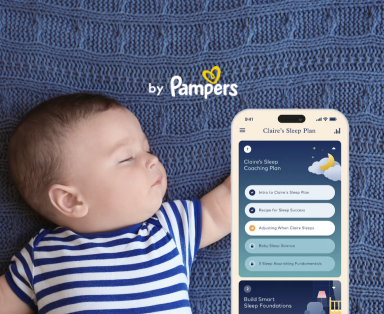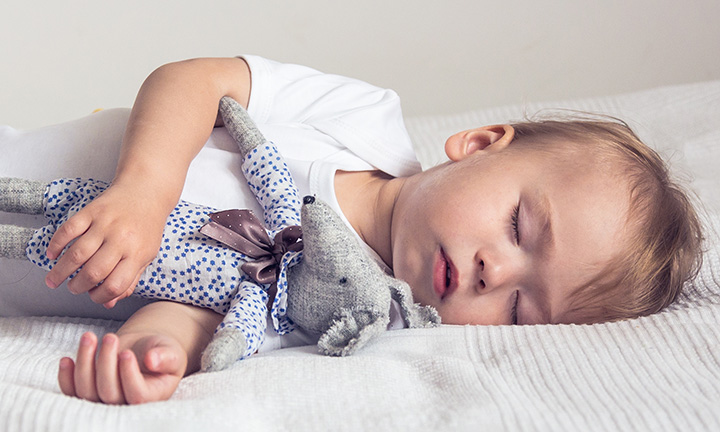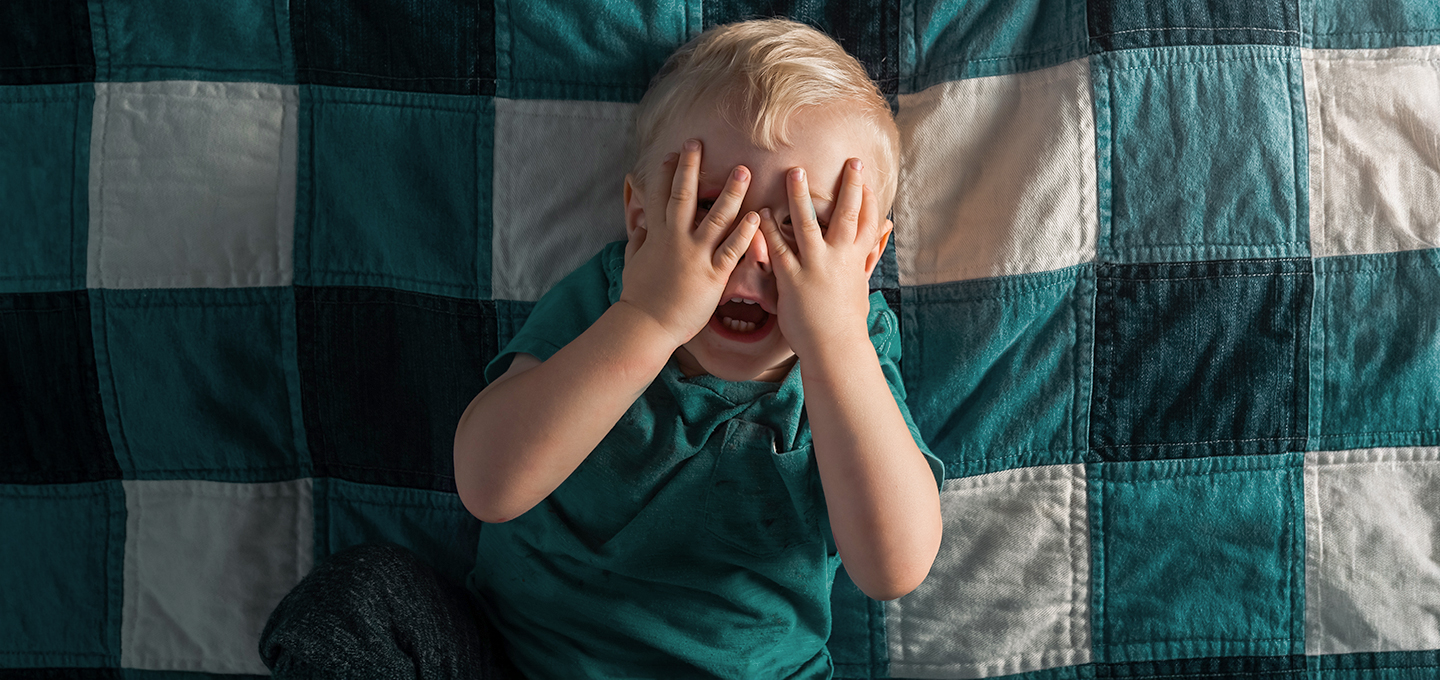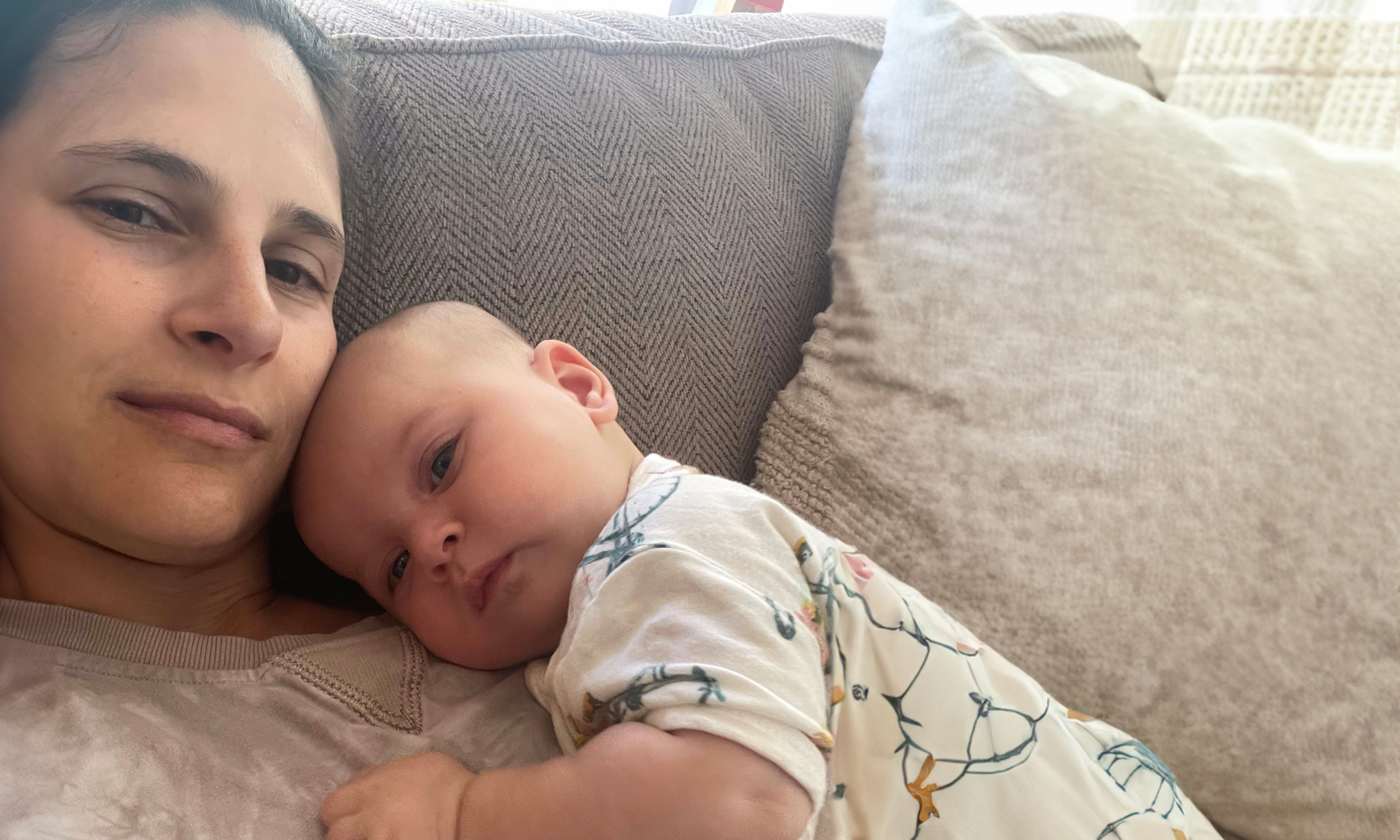
Managing Bed-Wetting (Nocturnal Enuresis) in Children


IN THIS ARTICLE
Key Takeaways
Bed-wetting is a typical developmental phase for many toddlers, which can sometimes be caused by a slower development of bladder control.
While it’s a normal part of growing, there are various causes such as genetics and hormone production. Most children naturally outgrow of this phase.
You can take some practical solutions like absorbent training pants, consistent sleep routine, and avoiding too much liquid before bedtime.
For more sleep solutions, you can explore sleep education, expert advice, and tracking tools on the dedicated Smart Sleep Coach by Pampers™ app.
Nighttime bed-wetting during sleep is more common in young children than you might think. Most children outgrow this type of bed-wetting, medically known as nocturnal enuresis, by the time they turn 5 years old, but in some cases it may still continue. Bed-wetting isn’t a medical condition; however, it's one that can be challenging for parents and embarrassing for children. Find out why kids wet the bed and how to manage this period in your child’s life.
What Is Bed-Wetting (Nocturnal Enuresis)?
When wetting of the bed happens in children only during sleep, it’s officially called nighttime incontinence or nocturnal enuresis, or more commonly bed-wetting. This involuntary urination happens while your child is asleep.
A familiar morning scene in many households may include wet sheets and pajamas, and an ashamed child. But know that this doesn’t mean your efforts with toilet training have gone down the drain. This is a normal part of your child’s development.
There are a number of ways you can manage these bed-wetting incidences. Your best approach is to practice patience and understanding with your child, and then follow up with solutions, of which we have many.
How Common Is Bed-Wetting in Children?
All children wet the bed and have “accidents” at some point during toilet training. Toddler bed wetting is a normal, expected part of the learning process. In general, bed-wetting may occur even after your child is toilet trained, which usually takes place between the ages of 2 and 4.
Even after toilet training has been successful, bed-wetting may occur up to two or three times a week. It may gradually become less prevalent and then will eventually disappear, often around the age of 5. But since every child is different, your child may or may not fall within this age range.
Bed-wetting can continue for some children after this age. Statistically, bed-wetting affects 1 out of 4 children at 5 years old, 1 out of 5 children at 7 years old, and 1 out of 20 children at 10 years old. For some parents, finding that their 5-year-old is still in diapers at night can be concerning, but it's important to remember that bed-wetting at this age is still common. Bed-wetting is more common in boys than girls. And, bed-wetting is hereditary, usually passed down through the father.
Bed-Wetting (Nocturnal Enuresis) Causes
Bed-wetting isn’t fully understood by medical professionals, but in general it’s believed that it takes time for children to develop bladder control at night. If you're wondering why do kids wet the bed, it's important to know that this involves controlling the nervous and muscular systems in order to subconsciously suppress the sensation of a full bladder. So, bed-wetting isn’t something any child can willingly stop.
Here are some reasons your child may be wetting the bed:
In Summary
There are many possible reasons your child is wetting the bed, including an underdeveloped bladder, an inability to hold urine, sleeping very deeply, producing too much urine at night, constipation that causes pressure on the bladder, emotional distress, or a medical issue.
Solutions for Managing Bed-Wetting With Your Child
If and when your child wets the bed, it’s best not to make a big issue out of it. Respond in a calm, low-key manner, and know that your child isn’t wetting the bed on purpose.
Here are 10 tips for managing bed-wetting with your child:
In Summary
The key to managing a bed-wetting incident with your child is not to scold them or make them feel ashamed. Instead, remain calm and help them understand that it was an accident, that it happens to many children, and that it will go away with time.
To manage your child’s bed-wetting, pay attention to their urine and bowel movements during the day, encourage toilet use before bedtime, consider putting them in training pants at night, and use a plastic mattress cover, among other things.
Signs That May Indicate It’s More Than Just Bed-Wetting
If your child still has frequent bed-wetting occurrences six months to a year after toilet training, it may be related to a medical condition.
If you notice any of the following signs in your toilet-trained child, consult their healthcare provider:
In Summary
Consult your child’s healthcare provider if you notice any change in their urination, such as the amount, the color, a weak stream, pain or burning during urination, or dribbling after urination. Other signs for which you’ll want your child seen by their provider include a genital rash, poor control over bowel movements, mood changes, and wetting day and night, among other things.
Seeing Your Child’s Healthcare Provider About Bed-Wetting
If your child older than 5 years old is still experiencing bed-wetting episodes even after trying the different methods mentioned above, consult their healthcare provider for guidance. The provider may ask you questions about the bed-wetting incidents to determine if the bed-wetting is related to stress, a family history of bed-wetting, drinking too much fluid or eating salty food, or if there’s anything unusual about your child’s urine.
Medical Tests for Bed-Wetting (Nocturnal Enuresis)
In some cases, your child’s healthcare provider may want to run tests to see if there’s an underlying cause for the bed-wetting.
If the provider suspects a urinary tract infection, the provider may order tests to check your child’s urine. The provider may prescribe antibiotics.
To rule out an abnormality in your child’s bladder or kidneys, the provider may order X-rays of your child’s bladder and/or ultrasound of their kidneys.
Treatment for Bed-Wetting (Nocturnal Enuresis)
In some cases, the healthcare provider may recommend simple home treatment for your child, such as discouraging them from drinking liquid two hours before bedtime. If constipation is an issue, the provider may recommend treatment for that.
Bed-Wetting Alarm
There’s another option that may help your child if they’re still wetting the bed after one to three months of no success: a bed-wetting alarm. Your child’s provider may recommend using this device, which includes a moisture-sensing pad that goes on either the bedding or your child’s pajamas.
The bed-wetting alarm works by awakening your child as soon as it senses wetness. However, the device isn’t foolproof; many children sleep right through the alarm. You, as the parent, may need to step in and wake up your child when you hear the alarm.
When used according to the provider’s instructions, the bed-wetting alarm may help condition your child to wake up when they need to use the toilet. It works for more than half of the children using it, but it may take at least four months of use to reach success.
Medications
Oral medications prescribed by the healthcare provider are also a possibility for older children; these work in about half to two-thirds of children who use them. Side effects are rare, but relapse rates are high. However, these medications may come in handy when used occasionally for specific situations, such as sleepovers and summer camp.
In Summary
If your child is still experiencing bed-wetting after the age of 5, it’s best to consult their healthcare provider for guidance. The provider may want to run some tests to rule out a medical condition. Depending on your child’s age, the provider may recommend treatment that includes the use of a bed-wetting alarm or prescription medication.
The Bottom Line
Bed-wetting has happened to just about everyone—even you when you were a child! It isn’t uncommon for children between 2 and 4 years old to experience bed-wetting during daytime and nighttime toilet training. Most children outgrow bed-wetting around the age of 5, but for some, it may continue. If you're wondering why do kids wet the bed, there are many reasons including underdeveloped bladder control, overproduction of urine at night, or even genetic factors.
There are many reasons why your child may be wetting the bed, some of them having to do with a developing bladder, an inability to hold urine at night, or an overproduction of urine in the evening. Sometimes a medical condition could be the cause. Children who have sleep apnea or ADHD are more likely to wet the bed. Bed-wetting can also be hereditary.
If your child does wet the bed, instead of punishing them, reassure them that it was just an accident, and that it has happened to everyone. To make future incidents less messy, you might consider putting your child in training pants and/or using a mattress cover. Before putting your child to bed, encourage them to use the toilet, and see that they drink less liquid in the evening.
If you’re concerned about your child’s bed-wetting, consult their healthcare provider for guidance. Tests may indicate that the bed-wetting is due to a medical condition. The provider may also decide to prescribe medicine to help, or recommend the use of a bed-wetting alarm to help condition your child to hold their urine. Rest assured that sooner or later every child will outgrow bed-wetting.












